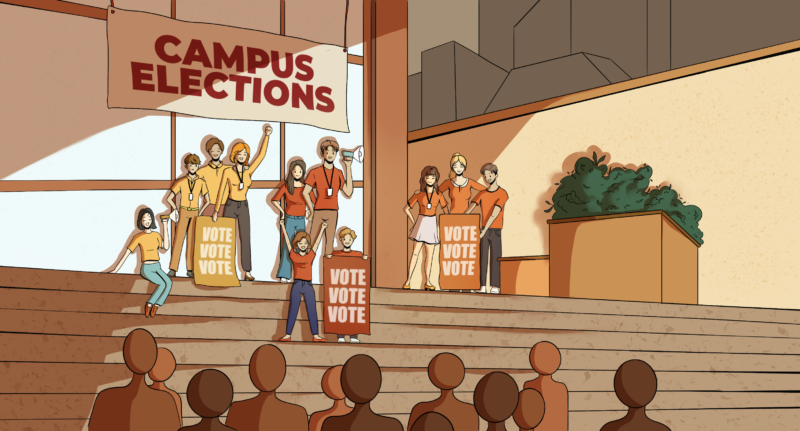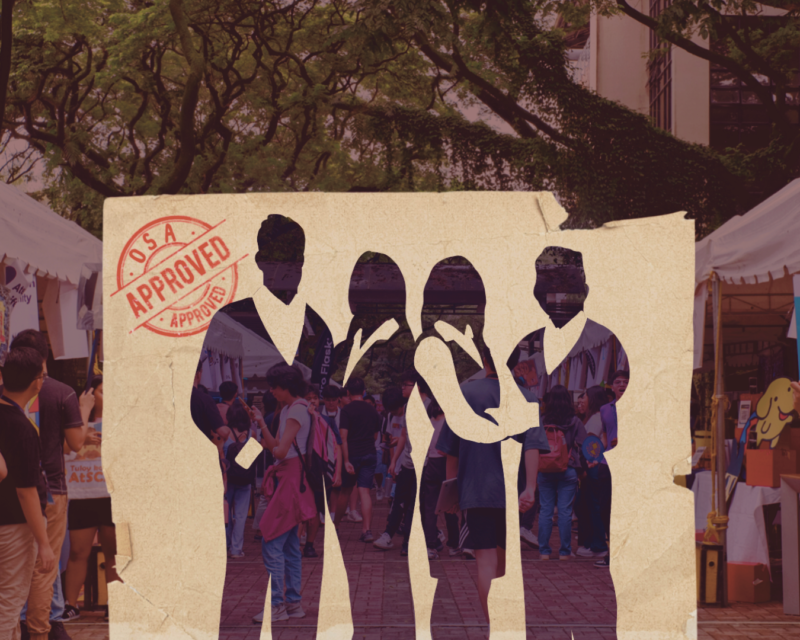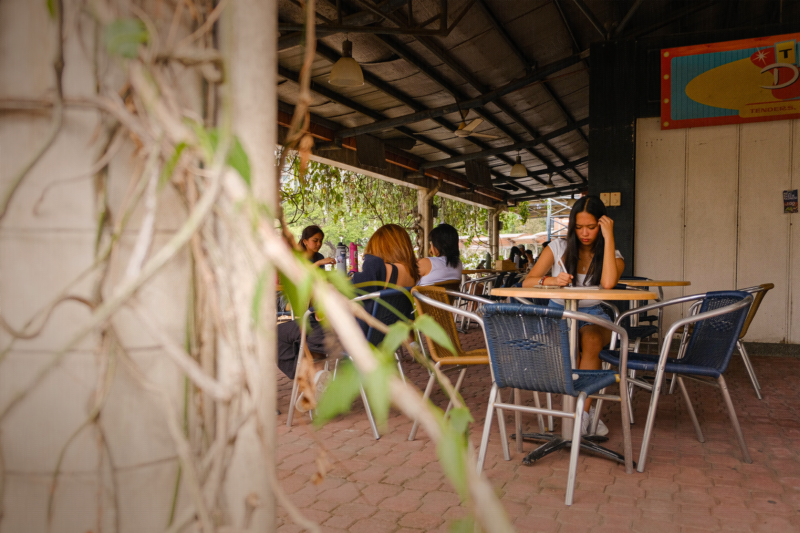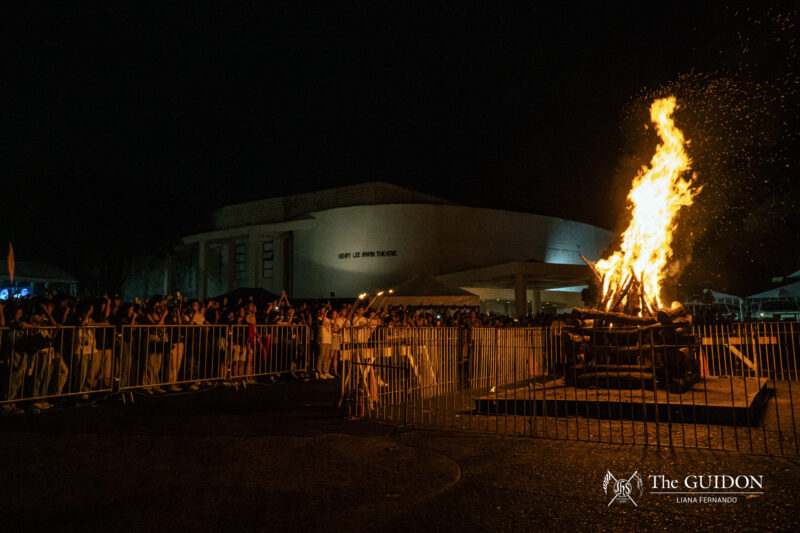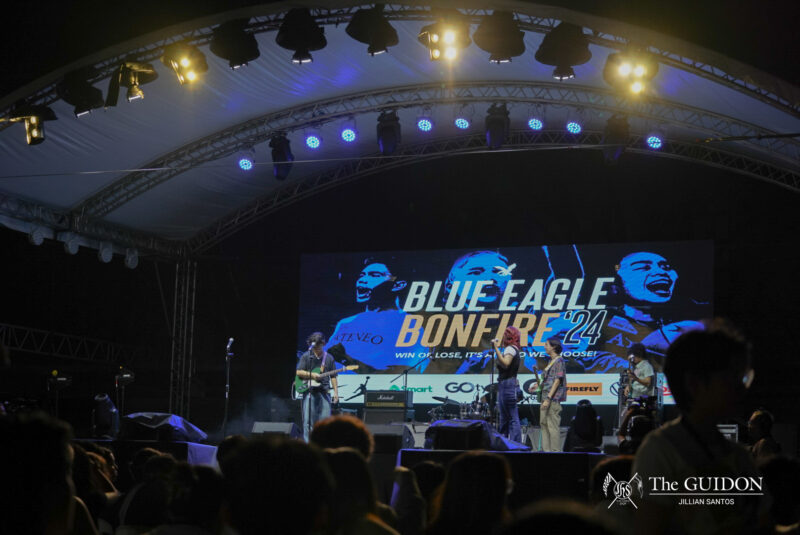NO STAY in the Ateneo is complete without experiencing its warm and lively student organization culture. Over the course of their college lives, students join these organizations to explore long-held passions and forge life-long friendships.
The League of Independent Organizations (LIONS) houses many of these organizations. Featuring a wide range of advocacies and interests, LIONS serves as an avenue for Ateneans to translate their passions to service.
Despite being a hub of diverse organizations, LIONS has also had its fair share of complications. For years, LIONS has struggled with decreased funding and underrepresentation in the Loyola Schools (LS).
However, LIONS’ addition to the Central Assembly (CA) as a sector on April 1, 2019, provided it a space to lobby its concerns in the Sanggunian. With greater access to support, LIONS has served as a brighter symbol of the vibrant student organization culture that the Ateneo is known for.
Self-sufficient system
Currently, there are 31 organizations under LIONS—one of which is Project LAAN. Founded back in 2011, the organization has been the main hub of public health advocates fighting for the right to health of all Filipinos through community outreach programs and campaigns.
Project LAAN was one of the first few student organizations under LIONS. Their advocacy to promote public health literacy remains timely, especially in the context of the current pandemic.
Prior to AY 2020-2021, Project LAAN would conduct its outreach program Tutubiyahe with its partner community in Calawis, Antipolo. However, with the shift to the online setup, Tutubiyahe was put on hold and Project LAAN focused on remotely disseminating modules instead.
Project LAAN Associate Vice President for Fieldwork Naomi Perez shares how these modules are formulated. “[We] conduct a needs assessment with the community to ensure that all the initiatives and modules are contextualized and based on what [they] really need. Contents are based on the health concerns of the community.”
However, the success of such projects did not come easy since there were still hurdles along the way, such as working around a small budget and struggling to engage with their partner community.
Project LAAN President Francis FlorCruz shares that the organization remains creative in addressing these concerns. He calls this a self-sufficient system, which is present in other LIONS organizations as well. Thus, LIONS organizations often resort to spearheading their own fundraisers to finance projects and initiatives.
LIONS coordinator Alexa Derpo shares that the existence of this self-sufficient system is rooted in LIONS’ issue of underrepresentation in the proper decision-making channels—a problem that was much more apparent prior to LIONS’ addition to the CA. Organizations struggled to bring up their concerns and lobby legislation to the administration without a voice in the CA.
“When you’re an independent organization, there’s a lot of factors that kind of work against you, but you still make it work,” she explains.
Towards better representation
It was only on April 1, 2019—eight years since its inception—that LIONS was able to campaign for sectoral representation to the Sanggunian and was formalized as a sector in the CA. This recognition translated to several benefits, including representation, financial support, and logistical assistance. Ultimately, this newfound seat at the table made it easier for them to address their old concerns.
Moreover, Derpo shares that there is now a much more proactive effort on the end of the LS administration, Sanggunian, and the Office of Student Activities (OSA) to assist LIONS. For instance, LIONS is now included in conversations with the Office of the Associate Dean for Student Formation, the Sanggunian, and the OSA in the formulation of policies directed towards the sector’s development.
More importantly, its addition to the CA has also made it easier to secure funding for organizations given their access to student activities funds in coordination with the Sanggunian Department of Budget Management.
Thus, the organization has found its footing amid the struggles that once muddled the sector.
“To put it bluntly, LIONS orgs were just not prioritized [then]. We were stuck in a vicious cycle… where they expected us to function like [the Council of Organizations (COA – M)] organizations but we’re not given the same benefits as COA organizations. So, what will you expect? Now, I really do see OSA’s attempts to support LIONS,” explains Derpo.
With the seat in the CA, the resources they receive are significantly more than before—but these are still inadequate.
At the start of the AY 2021-2022, Derpo faced the challenge of representing the vast, diverse LIONS sector by herself and proposing their sectoral budget to the Sanggunian. While the LIONS budget resulted in a 6-figure value, there is still a struggle to divide it among the organizations under LIONS.
“For the long run, I still do feel like the budget allocated to sectors is limited. We wouldn’t really expect a big budget for LIONS because we’re still treated as a sector and not like a cluster of organizations—which we really are at [our] core,” Derpo says.
Thus, the self-sufficient system of LIONS continues for a while longer.
Derpo explains, “I would be doing the [LS] admin, OSA, and the CA a disservice if I say that we’re 100% self-sufficient because, at the end of the day, we do still receive funding. […] But I feel like we’re forced to be self-sufficient for a much longer time because we just have to wait a little longer compared to COA or [the Sanggunian].”
A space to learn
Despite these risks, LIONS exists to represent the vibrant community in the Ateneo comprising various interests and advocacies.
OSA Coordinator for Emerging and Independent Organizations Rem Casiño believes that joining organizations will enable students to find meaning and learn more about themselves. Other than the wide range of organizations that students can choose from, LIONS represents students’ rights to self-organization.
It also serves as a space to make mistakes, as organizations are given the freedom to test the waters. Derpo shares that there isn’t any pressure in founding your own organization just as long as you’re passionate about it.
Furthermore, its addition to the CA marks how the LS community values inclusivity and assures that these organizations are well-seen.
“I feel like one thing that also gets overlooked that’s really important with us having a seat at the table is its symbolism that we’re collaborating with all other University bodies. I think the most important thing aside from benefits is, we’re able to stay not only in communication, but we’re able to participate, we’re able to be included,” she shares.
She assures the community that LIONS is committed to serving as a safe space for students and their organizations to flourish, as shared by LIONS moderator and co-founder Harry Tomintz.“LIONS continues in some way, shape, and form. It’s the drive, the passion that brings us together, that motivates us to create it again and again, so long as students need a hand. And that’s what’s important, that we’re driven by that common desire.”


